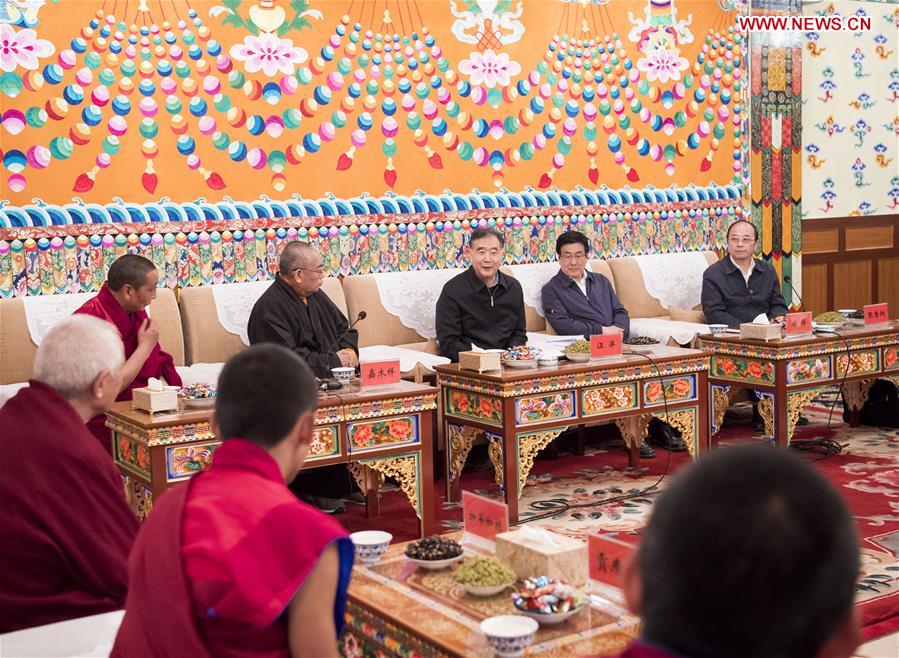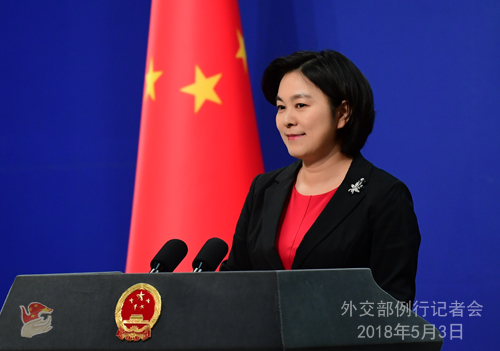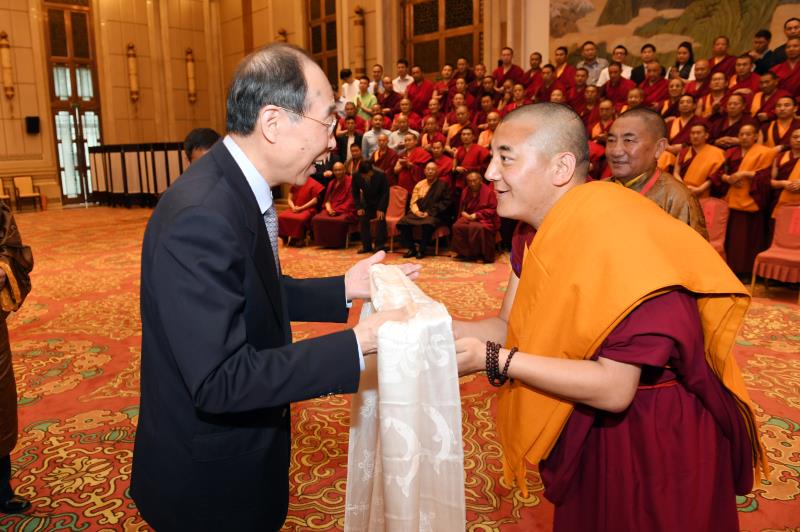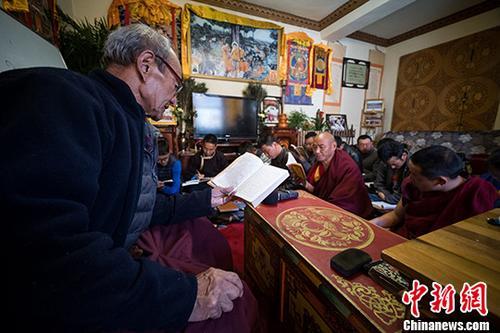U.S. falsifies report on religious freedom
The United States recently released its 2018 Report on Religious Freedom, and in it, they continue to make unwarranted charges against other countries’ domestic affairs. Once again, the report lists China as a “special attention country”, criticizing the normal order of religion in the Xinjiang Uighur Autonomous Region and Tibet Autonomous Region.
In response to this, Hua Chunying, spokesperson for the Ministry of Foreign Affairs, stated at a regular press conference on May 3 that the Chinese government protects its citizens' freedom of religious belief in accordance with the law. The Chinese people of all ethnic groups are entitled to full religious freedom under the law. This fact is there for all to see. The so-called commission has been politically biased against China all along in disregard of China's progress in the religious field and kept issuing the report to smear China's religious policy and status. Such untrue accusation is not even worth refuting.
The editor believes that the response issued by China’s Ministry of Foreign Affairs is concise and powerful and does not refute or engage in argument with a Commission that has consistently ignored objective facts, upheld double standards, and persistently speaks for itself, which would be like trying to wake someone who is only pretending to be asleep. What’s more, “pretending to be asleep” is already a common practice for this Commission.
According to the so-called “International Religious Freedom Law” passed in 1998, the United States Congress established an independent, inter-party Commission on International Religious Freedom, who is responsible for drafting the annual report on international religious freedom.
At first glance, it appears that the Commission is “authoritative” and “professional”, and it’s hard to believe it is neither “objective” nor “independent”. In August 2017, the Hong Kong WenWeiPo newspaper pointed out that the Commission has no independent research department and faces a shortage of manpower, so it is simply unable to carry out basic research. Instead, it directly uses the reports of some local and international NGOs as authoritative sources without independently verifying the accuracy of the cited data. James Zogby, former vice-chairman of the Commission, disclosed that members on the Commission only basically “produce drafts based on the information obtained from various interest groups, then submit them to experts to modify the content of the countries involved, and some of these so-called experts do not understand these countries at all.”
In April 2017, the French Cross Newspaper also issued an article criticizing the Commission for treating different countries and religions differently, pointing out that the deterioration of religious freedom around the world indicated the failure of the U.S. Commission on International Religious Freedom. The American news website Huffington Post also stated that the double standards upheld by the U.S. Commission on International Religious Freedom greatly weaken its ability to promote religious freedom.
Over the years, in order to establish an image as “global hegemon”, and “judge of world human rights”, the United States has always spared no effort in vilifying the image of other countries and in making itself the “exception”. Is the United States really so perfect? Are the U.S.’s own religious and human rights conditions really without fault?
In April 2018, the State Council Information Office of China published the “America’s Human Rights Record For 2017” and the “America’s Human Rights Violations of 2017”, which showed that the U.S.’s own human rights record is tainted. Racial discrimination is deeply rooted in the United States. Muslims have long been subjected to discrimination and attacks… under the pretense of so-called “universal values”, American society has never lacked of examples of human rights violations.
On January 1, 2017, the U.S. government issued an executive order prohibiting citizens of Iran, Iraq, Libya, Somalia, Sudan, Syria, and Yemen from entering the U.S. Since the countries involved in the ban all have majority Muslim populations, the executive order has also been commonly interpreted as a “Muslim ban”. This ban caused widespread protest in the United States and around the world. According to a survey conducted by the Pew Research Center in early 2017, 75 percent of adult Muslims in the U.S. said that there is a lot of discrimination against Muslims in American society; 50 percent of Muslims said that it has become more difficult to be Muslim in the U.S. in recent years; nearly half of Muslims said that they have suffered at least one instance of religious discrimination in the past year; and more than half of Muslims believe that the U.S. media’s coverage of Muslims is unfair.
The editor came to understand why the report by the Commission on Religious Freedom shows the “continued deterioration of religious freedom around the world” year after year, and always ignores other countries’ efforts and progress at protecting citizens’ freedom of religious belief and other human rights: it is because the United States is on the road of unilateralism and hegemonism, and it can only maximize its own national interests by destroying the peace and stability of other countries.
Since the United States is so “enthusiastic” about the religious affairs of other countries, the editor would like to use a sentence from Tibetan Buddhism to offer a warning: “When you use one finger to blame others, don’t forget that there are always three fingers pointing at yourself.”
Your Comment
Name E-mailRelated News
-
-

-
Senior CPC official stresses ethnic, religious work in Tibetan areas
Senior Communist Party of China (CPC) leader Wang Yang has called for better work regarding ethnic and religious affairs as well as poverty relief in the country's Tibetan areas.
-
-
-
Trump, Kim to meet at Capella Hotel on Singapore's Sentosa Island: White House
U.S. President Donald Trump and top leader of the Democratic People's Republic of Korea (DPRK) Kim Jong Un will meet at the Capella Hotel on Singapore's Sentosa Island, the White House said on Tuesday.
-
-
White House says Trump-Kim meeting scheduled for 9:00 a.m. on June 12
U.S. President Donald Trump and the top leader of the Democratic People's Republic of Korea (DPRK), Kim Jong Un, are scheduled to meet at 9:00 a.m. Singapore time on June 12, the White House said on Monday.
-
-
Area around Shangri-La Hotel declared "special event area" for Trump-Kim Summit
Singaporean authorities have designated the area surrounding the Shangri-La Hotel a "special event area" from June 10 to June 14, for the summit between US President Donald Trump and North Korean leader Kim Jong Un.
-
-
U.S. reportedly plans to impose tariffs on steel, aluminum imports from EU
The Trump administration is planning to impose punitive tariffs on steel and aluminum imports from the European Union (EU), local media reported on Wednesday.







